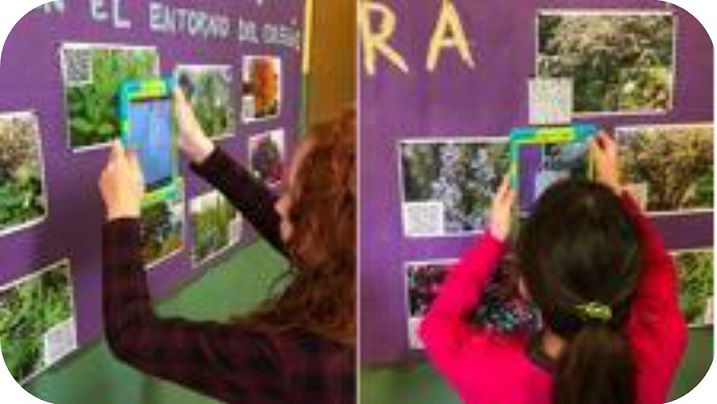Percepción docente sobre la Realidad Aumentada en la enseñanza de ciencias en Primaria. Análisis DAFO

Downloads
- PDF (Español (España)) 2429
- EPUB (Español (España)) 259
- VISOR (Español (España))
- MÓVIL (Español (España))
DOI
https://doi.org/10.25267/Rev_Eureka_ensen_divulg_cienc.2019.v16.i3.3301Info
Abstract
Esta investigación pretende: a) identificar las posibilidades didácticas de la Realidad Aumentada (RA) para el aprendizaje científico en primaria percibidas por los docentes y b) efectuar un análisis DAFO relativo a su implementación en la enseñanza de ciencias. Para ello, se analizan - mediante un cuestionario- las percepciones de una muestra de docentes (N=41) participantes en el proyecto Experiment with Augmented Reality, impulsado por la Consejería de Educación asturiana (2017-18), donde participaron 542 alumnos; y posteriormente, al término de dicho proyecto, se llevó a cabo un análisis DAFO. Entre los resultados se destaca que el profesorado considera que la RA incrementa las competencias científicas del alumnado y su motivación hacia la ciencia, fomenta la colaboración y genera un clima de aula propicio para la indagación y el trabajo por proyectos. Sin embargo, se detectan dificultades como la escasa formación docente y la precariedad de los recursos tecnológicos de las escuelas.
Palabras clave: realidad aumentada, contenidos científicos, competencia científica, educación primaria.
Teachers´perception about augmented reality for teaching science in primary education. SWOT Analysis.
Abstract: The aims of this research are: a) to identify the educational possibilities of Augmented Reality (AR) for Science learning in primary education, according to the teachers’ perception, and b) to do a SWOT analysis related to AR implementation in Science teaching and learning. With this purpose, a survey was used to analyse the perceptions of a sample of teachers (N=41) participating in the Project Experiment with Augmented Reality, supported by the Asturian Department of Education (2017-18), which involved 542 schoolchildren. Afterwards, at the end of the project, a SWOT analysis was made. Amongst the results, it can be highlighted that, according to the teachers’ perception, AR increases scientific competences in students, as well as their motivation towards science. It also fosters collaboration and creates a classroom environment favourable for investigation and project based learning. However, some difficulties are detected, such as the limited training of teachers and the scarcity of technological resources in schools.
Keywords: Augmented reality, scientific contents, scientific competence, primary education.
Downloads
Supporting Agencies
How to Cite
License
Copyright (c) 2019 Los/as autores/as pueden mantener el copyright, concediendo a la revista el derecho de primera publicación. Alternativamente, las/os autoras/es puede transferir el copyright a la revista, la cual permitirá a las/os autoras/es el uso no-comercial del trabajo, incluyendo el derecho a colocarlo en un archivo de acceso libre. Además, se puede consultar Creative Commons sobre licencias de copyright flexibles.

This work is licensed under a Creative Commons Attribution-NonCommercial-NoDerivatives 4.0 International License.
Require authors to agree to Copyright Notice as part of the submission process. This allow the / o authors / is non-commercial use of the work, including the right to place it in an open access archive. In addition, Creative Commons is available on flexible copyright licenses (Creative Commons).

Reconocimiento-NoComercial
CC BY-NC





